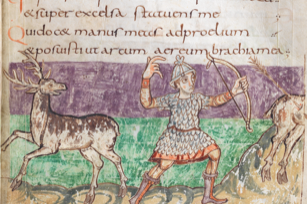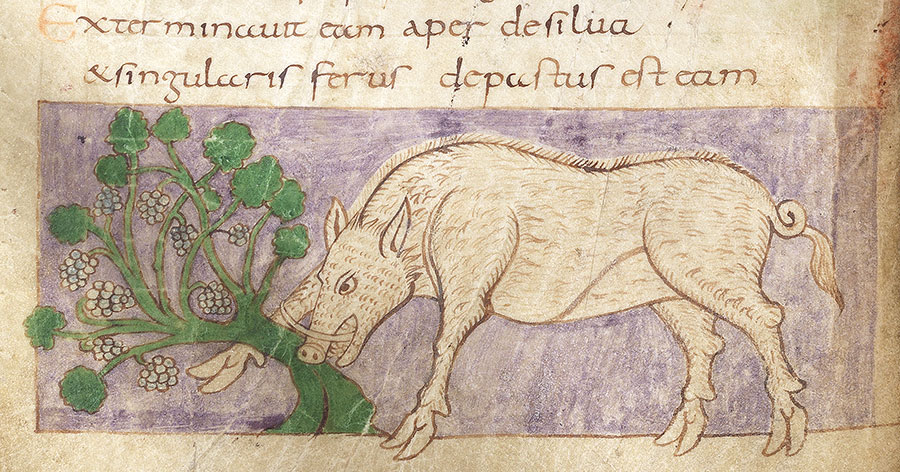
We're familiar with the status trappings of the hunt: taxidermied trophy heads, well-oiled vintage firearms, Prince Philip's Land Rover hearse. Hunting's role as an aristocratic power play has a long and little-known history that Eric J. Goldberg, an associate professor of history at MIT, explores in his groundbreaking book In the Manner of the Franks: Hunting, Kingship, and Masculinity in Early Medieval Europe (University of Pennsylvania Press, 2020).
Goldberg will offer new insights into hunting's political implications for the Medieval world in his Honors College Mic Lecture, "The Sport of Kings: Hunting in the World of Charlemagne," at 5:15 p.m. Tuesday, Oct. 25, in the Honors Student Lounge in Gearhart Hall (GEAR 130).
As an expert on politics and culture from the Merovingian, Carolingian and Anglo-Saxon worlds, he stumbled on the topic while researching his first book, a political biography of Charlemagne's grandson Louis the German.
"I kept noticing that, wow, these kings are spending a lot of time hunting — it just struck me as interesting and peculiar," Goldberg said. "And usually, as a historian, when you come across something that seems weird to you, you're on the cusp of making an interesting insight."
Conventional wisdom among historians held that sophisticated elite hunting as a courtly ritual did not emerge until the 12th century, but Goldberg says the practice stretches back much earlier. "As soon as we see the first civilizations in Egypt and Mesopotamia, we see elites hunting as a type of military training, as a public demonstration of their military prowess, as a marker of what it means to be a powerful man." This take on hunting as a ritual of status and manhood passed on to the Romans and the Franks that followed them and was seized on by Charlemagne as a useful tool in building his eighth-century empire.
"How you hunt became an expression of who you are," Goldberg emphasized.
He combed through Carolingian chronicles, law codes, charters, poetry and art to tease out hunting's connections to politics and society. His research even extended to zooarchaeology, where analysis of animal bones found at archaeological sites reveals what people were eating. Reports that he studied showed that village folk were eating local animals, while elites were feasting on venison and wild boar.
"Every piece of evidence is a puzzle, and we read it on two levels," Goldberg said. "What does it tell us about hunting? And how does this represent power?"
Come to the Honors College Mic lecture to learn more fascinating details on the history of the royal hunt.

The Honors College Mic series showcases notable leaders, alumni and scholars who share insights and expertise on a wide range of topics. Overall, these lectures foster intellectual conversation at the University of Arkansas through shared dialogue between lecturer and student, faculty and staff, and the wider populace.
Contacts
CD Eskilson, editor
Honors College
479-575-7678, ceskilso@uark.edu
Kendall Curlee, director of communications
Honors College
479-575-2024, kcurlee@uark.edu